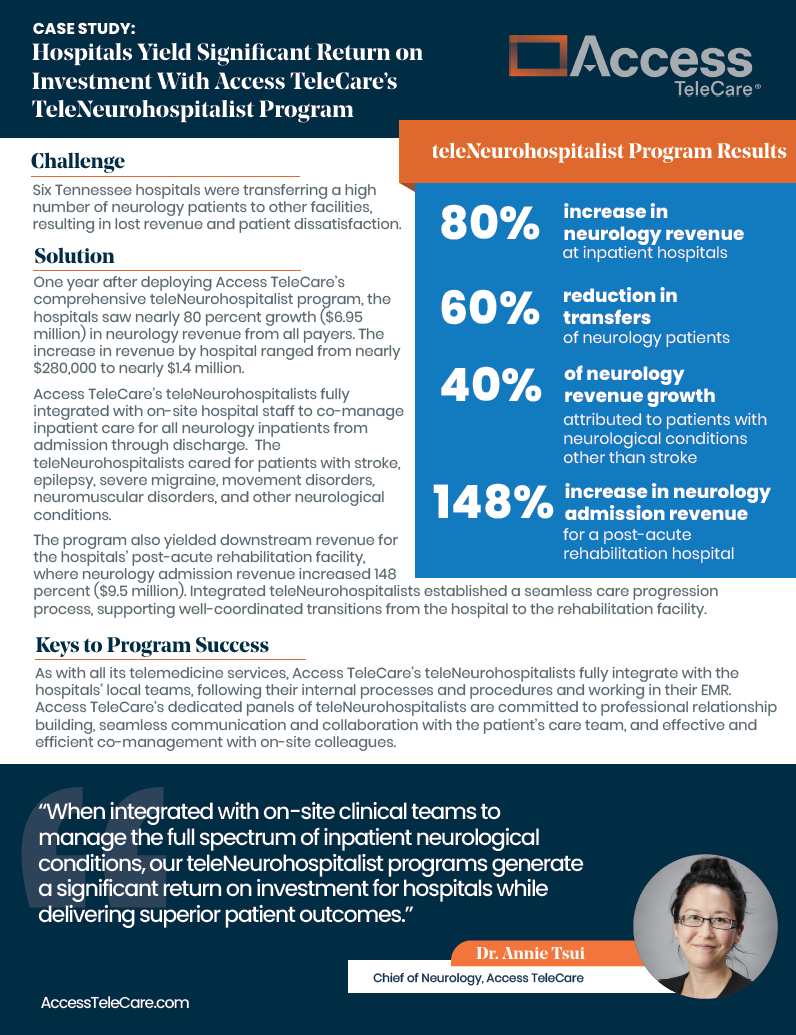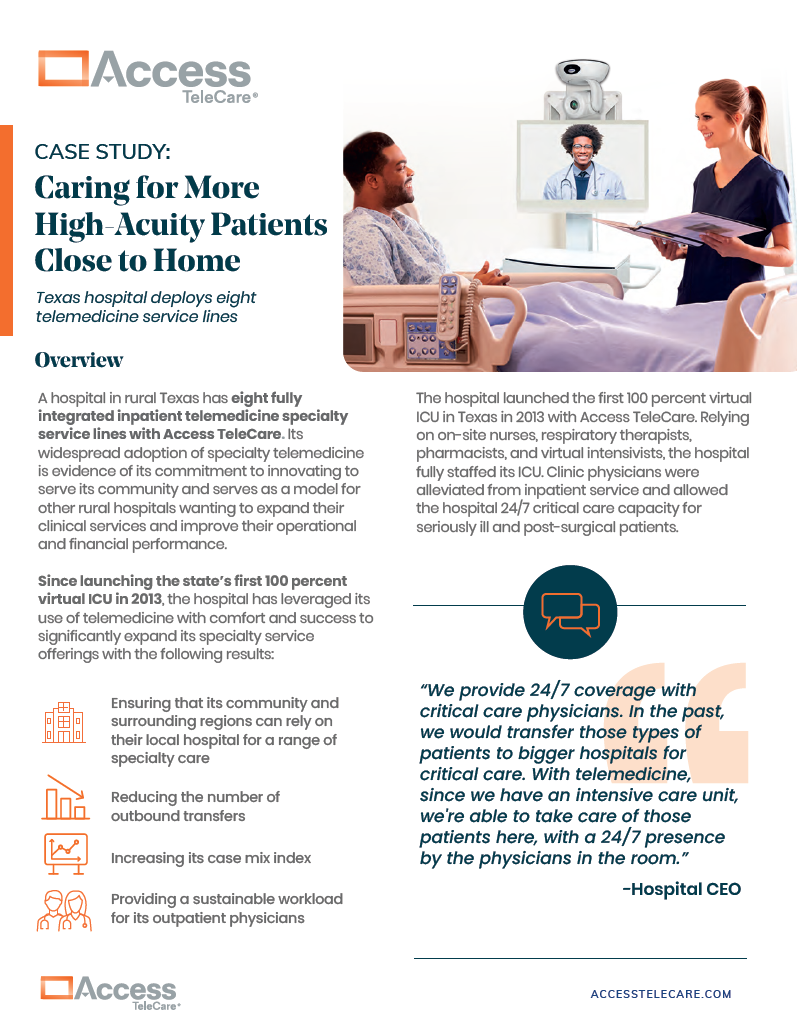Video: Strategies for Overcoming Healthcare Challenges with Telemedicine Experts
For more than two decades, Access TeleCare has operated at the forefront of virtual care delivery, advancing telemedicine as a sustainable, strategic solution for the challenges modern health care providers face. Our telemedicine programs have yielded significant results for our hospital partners and a wealth of insights into the future of health care delivery.
Webinar Key Points
Acute Telemedicine is the Answer to Hospital Financial & Staffing Challenges
Acute Telemedicine is the Answer to Hospital Financial & Staffing Challenges
Telemedicine addresses physician burnout, workforce shortages, specialist availability, access to care, and timeliness of care challenges.
Hospital-based Telemedicine Works for Both Rural & Urban Communities
Hospital-based Telemedicine Works for Both Rural & Urban Communities
Telemedicine can transform care for both rural and urban communities. The webinar focused on our neurology and behavioral health programs.Telemedicine is a Game-Changer for Acute Behavioral Health Care
Telemedicine is a Game-Changer for Acute Behavioral Health Care
ED boarding and wait times were reduced while also improving the patient experience and patient health outcomes.Neurology revenue increased 300% upon adding teleNeurology services
Neurology revenue increased 300% upon adding teleNeurology services
Timely acute stroke care, fast EEG readings, and high-quality teleNeurohospitalist services provided better care and reduced transfers, enabling patients to stay local and get care quickly.
See our Telemedicine Programs in Action
Hospitals Yield Significant ROI with Access TeleCare’s TeleNeurohospitalist Program
Access TeleCare’s teleNeurohospitalists fully integrated with on-site hospital staff to co-manage inpatient care for all neurology inpatients from admission through discharge. The teleNeurohospitalists cared for patients with stroke, epilepsy, severe migraine, movement disorders, neuromuscular disorders, and other neurological conditions.
Caring for More High-Acuity Patients Close to Home
When rural hospitals implement telemedicine, they typically have one, possibly two, service lines. This hospital in rural Texas has eight. Since launching an Access TeleCare teleICU and telePulmonary/Critical Care program in 2013, the hospital continued to expand its telemedicine services.
See more insights from Access TeleCare
Empowering nurse leadership through telemedicine at AONL 2025
Nurses are the heart of patient care, and telemedicine is enhancing their ability to provide [...]
Learn about a telemedicine career with Access TeleCare at the Psych Congress NP Institute Annual Meeting
As the leading teleBehavioral health practice in the country, Access TeleCare is at the forefront [...]
Congress extends telehealth flexibilities — what it means for hospitals and patients
Telehealth just got another six months of critical support. President Trump signed a critical federal [...]
Access TeleCare Highlights Advances in TeleNeurology at AANN 2025
From stroke to seizure management, we’re transforming delivery of time-critical neurological care for hospitals of [...]
Breaking Through the Screen™️: human connection in virtual care
Inpatient telemedicine is here to stay — but how do we make sure technology [...]
Virtual neurology and behavioral health at UnityPoint Health: a success story powered by Access TeleCare
When UnityPoint Health made expanding access to specialty care across its system a top [...]




















